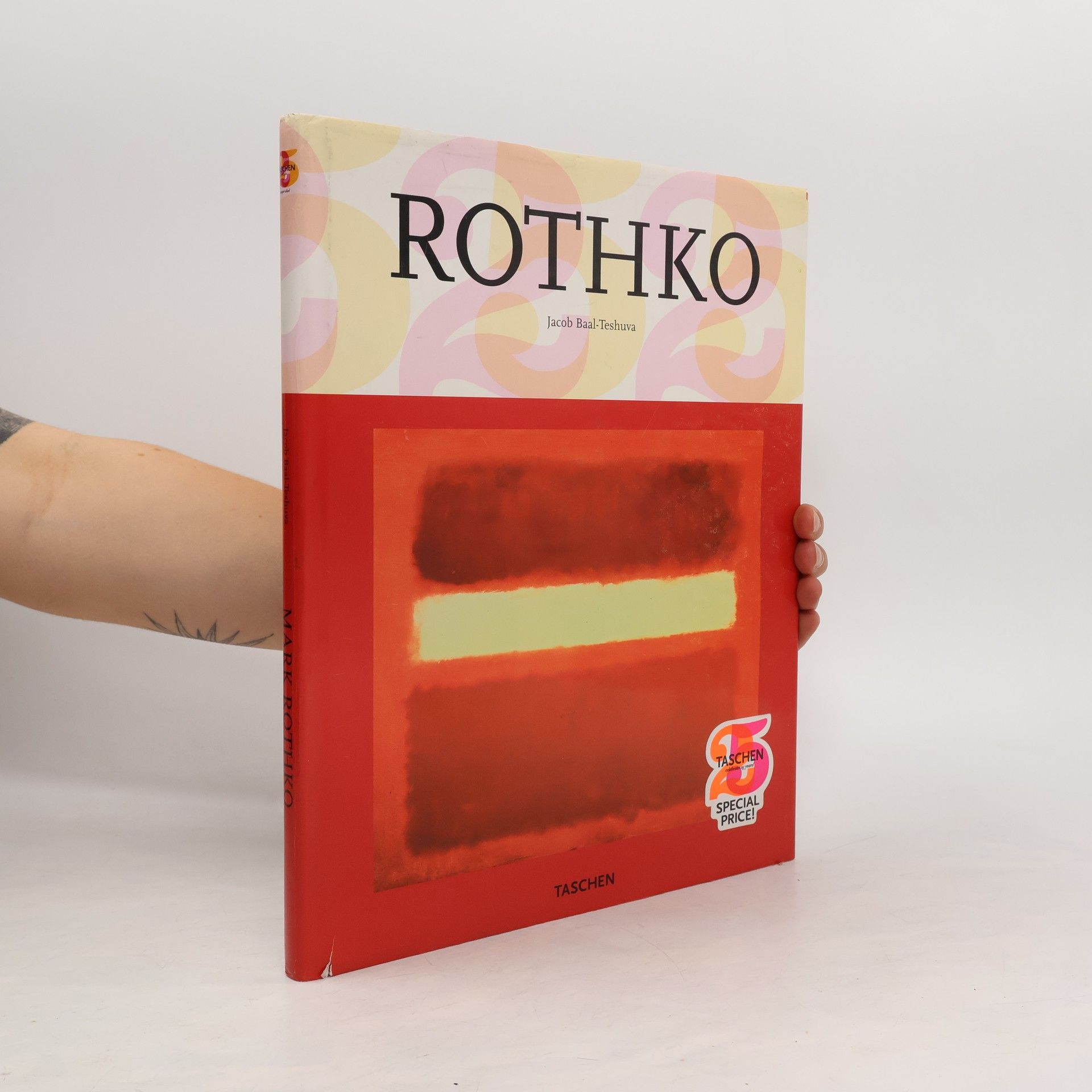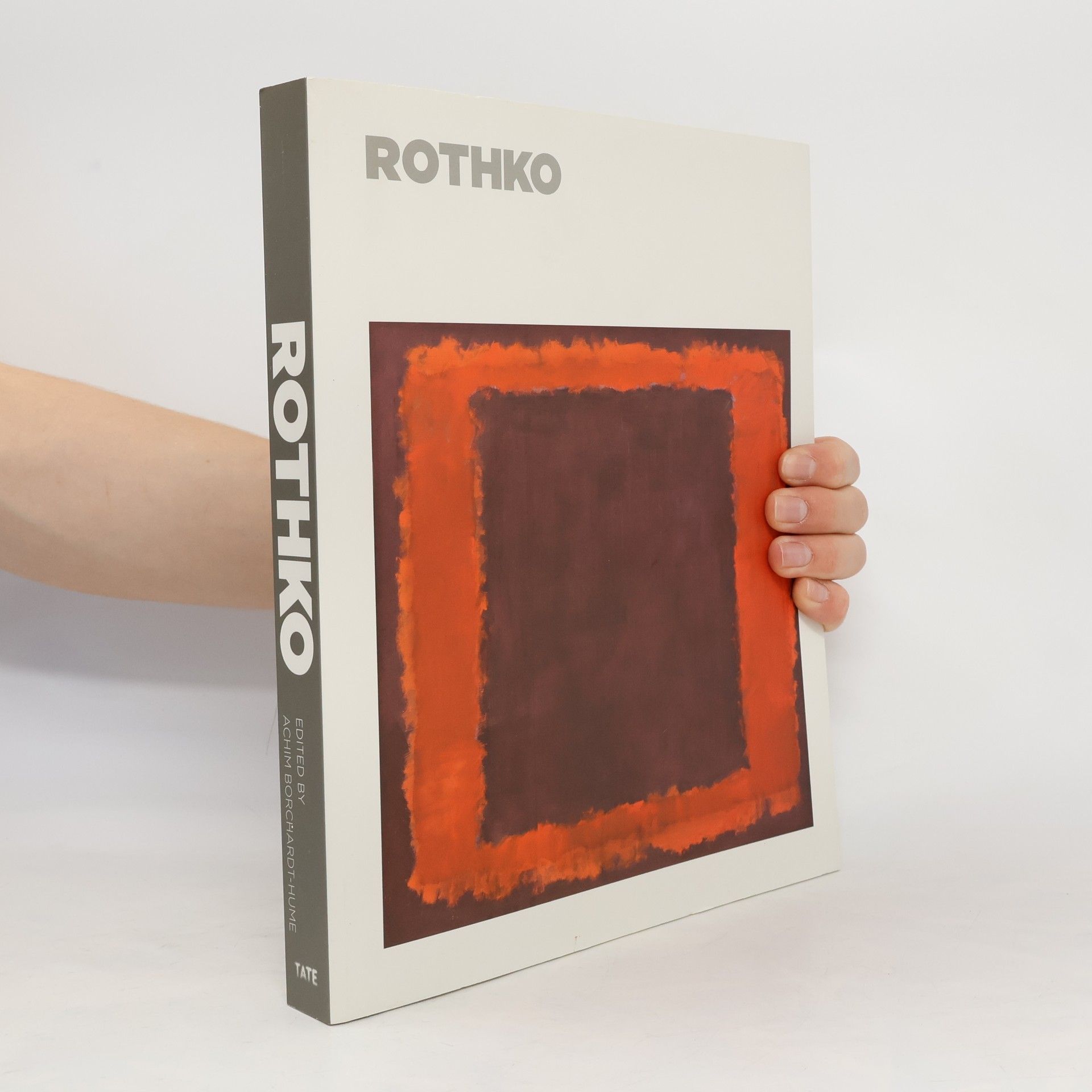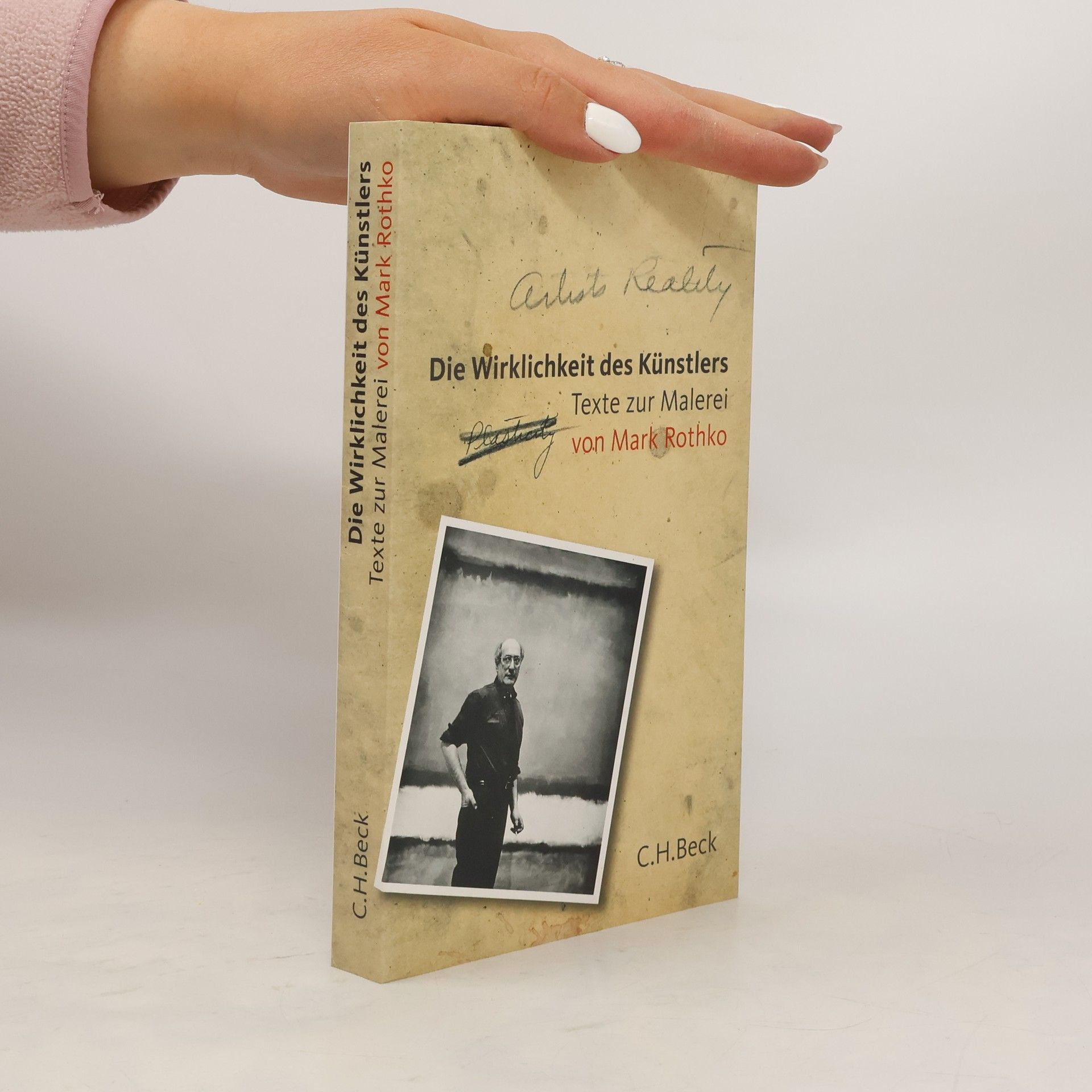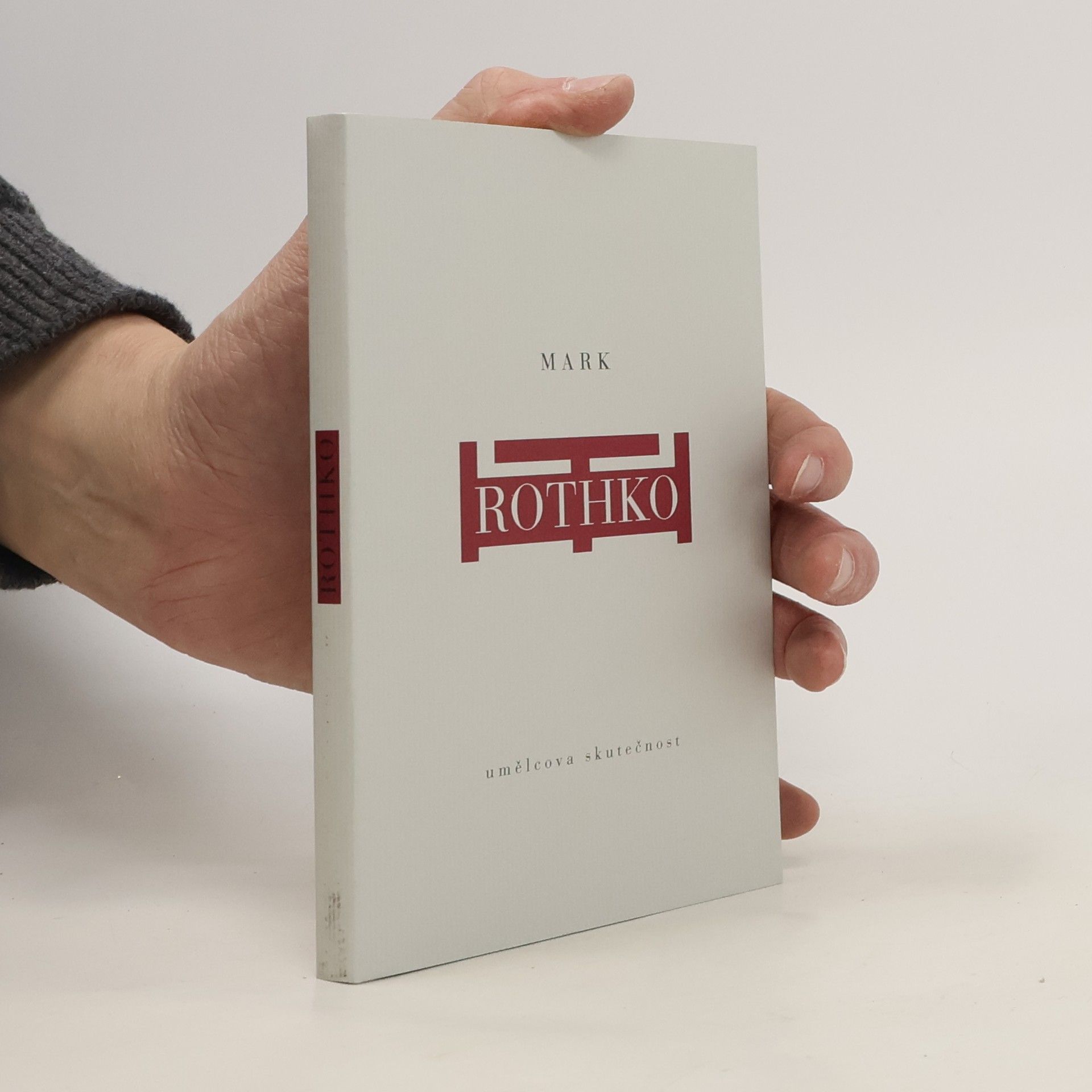Mark Rothko Book order (chronological)
This author explores profound human experiences through his work. His art often reflects the complexities of identity and cultural transition. With a keen eye for detail and a strong visual language, he invites readers to contemplate their place in the world. Through his creations, he offers a unique perspective on universal themes of human existence.







Die Wirklichkeit des Künstlers
Texte zur Malerei
Mark Rothko (1903 - 1970) ist einer der beliebtesten Künstler des 20. Jahrhunderts, vor allem bekannt als Hauptvertreter des Abstrakten Expressionismus. Die faszinierende Rätselhaftigkeit seiner Bilder wurde dadurch befördert, dass der Künstler selbst zu Lebzeiten nur selten öffentlich Stellung zu seinem Werk bezog. So war es eine kleine Sensation, als viele Jahre nach Rothkos Tod ein bislang unbekanntes Manuskript entdeckt wurde. Bei dem außergewöhnlichen Schriftstück mit dem Originaltitel «The Artist’s Reality», das wohl um 1940/41 entstand, handelt es sich um Rothkos Kunstphilosophie. Der Text spiegelt die Auseinandersetzung des Malers mit zentralen Themen der Kunst und bietet einen interessanten Einblick in die Weltsicht des bildenden Künstlers. Reproduktionen der Originalseiten sowie eine Auswahl wichtiger Werke aus der Entstehungszeit des Manuskripts illustrieren den Band.
wichtigster Vertreter des abstrakten Expressionismus Gemälde von hoher emotionaler Intensität Mich interessieren nur die grundlegenden menschlichen Emotionen. Mark Rothko
Mark Rothkos Gemälde sind Ikonen der modernen Malerei, und zählen zu den herausragendsten Arbeiten des abstrakten Expressionismus. Das Buch präsentiert seine bekanntesten Arbeiten - großformatige Ölgemälde mit gestapelten, ineinander verschwimmenden, monochromen Farbflächen. Der großzügige Bildteil wird ergänzt durch Texte seines Sohnes Christopher sowie der amerikanischen Kuratorin Janet Bishop (San Francisco Museum of Modern Art). Die feuilletonischten Aufsätze geben Einblick in das bewegte Leben des Malers, seiner Vorbilder, Inspirationsquellen und seinem Einfluß auf die modernen Kunst. Der hochwertige Leineneinband ist mit einer montierten und eingelassenen Farbtafel veredelt. Das Buch ist nach langer Zeit erste und auch einzige erhältliche Bildband in Deutscher Sprache über Mark Rothko.
This volume contains a survey of the works by Russian-born American painter Mark Rothko (1903-1970). Rothko belongs to the generation of American artists who completely revolutionized the essence of abstract painting. His stylistic evolution, from a figurative visual repertoire to an abstract style rooted in the active relationship of the observer to the painting, embodied the radical vision of a renaissance in painting. Rothko characterized this relationship as a consummated experience between picture and onlooker. His color formations indeed draw the observer into a space filled with an inner light. He was mainly concerned with the viewer's experience, the merging of work and recipient beyond verbal comprehension
Rothko
- 256 pages
- 9 hours of reading
Presents an exhibition catalog that reunites the artist's famed Seagram Murals, originally intended for the "Four Seasons" restaurant in New York, and includes appreciations of his work.
Die fast einhundert Texte in diesem Buch, zwischen 1934 und 1969 geschrieben, zeichnen Rothkos ästhetisches Denken im Verlauf seines künstlerischen Lebens nach. Die Schriften sind Marksteine eines dem Malen gewidmeten Lebens; eine Art intellektuelles und emotionales Porträt des Menschen Mark Rothko. Diese umfassende Sammlung von Rothkos Schriften enthält viele bisher unveröffentlichte Texte: Essays zur Kunsterziehung, kunsttheoretische Abhandlungen, Vorträge und Interviews. Außerdem seine Briefe an Kuratoren und Galeristen sowie befreundete Kollegen wie Barnett Newman und Clyfford Still.
Malířské začátky Marka Rothka (1903 Litva – 1970 USA) byly ovlivněny jak figuralisty (Edward Hopper), tak surrealisty, poté co se jeho hlavní představitelé Breton a Ernst začlenili během svého nuceného válečného exilu do okruhu newyorské avantgardy. Vlastní výraz nalézá až po roce 1947 a to v abstraktních kompozicích horizontálních barevných ploch. Eliminuje ze své tvorby jakýkoliv intelektualismus - oprošťuje své obrazy od symbolů a tvarů, nechává působit intimní barvy a vytváří tak ve svých dílech vysoce spirituální atmosféru. Plátna bez určitých forem představují pravé učení abstraktního expresionismu - přímou odpověď na nerozluštitelné tajemství lidské duše. Hluboká duchovní postata jeho malby vedla v roce 1965 známou sběratelku moderního umění Dominique de Menil k objednávce cyklu maleb pro ekumenickou kapli na Houstonské universitě, architektem byl Philip Johnson. Po intenzivních tónech červených, žlutých a oranžových jeho paleta v pozdních padesátých letech ztemněla, aniž by ztratila na psychické sugestivnosti. Náš výbor obsahuje Rothovy eseje, příležitostná prohlášení a projevy, tři rozhovory a vzpomínku přítele J.H. Fischera.
Writings on Art
- 172 pages
- 7 hours of reading
Includes 90 documents, short essays, letters, statements and lectures, written by Rothko. This book includes annotation and a chronology of the artist's life and work. It presents a compilation of both published and unpublished writings from 1934-69, telling the importance of writing for an artist who many believed had renounced the written word.
A recently discovered manuscript by celebrated artist Mark Rothko presents a landmark discussion of his views on topics from the Renaissance to contemporary art, criticism, and the role of art and artists in society. Rothko (1903–1970), a pivotal figure in twentieth-century art, developed a passionate form of abstract painting and contributed essays and critiques that reflected his intelligent and opinionated voice in contemporary art debates. Although he never published a comprehensive book of his thoughts, he hinted at the existence of such a manuscript to friends. After being stored in a New York City warehouse for over thirty years, this extraordinary work, titled The Artist’s Reality, is published for the first time. Likely written around 1940–41, it explores Rothko’s insights on modern art, art history, myth, beauty, and the challenges faced by artists in society, alongside his views on “American art.” The publication includes an introduction by Christopher Rothko, the artist’s son, detailing the manuscript's discovery and the publication process, complemented by examples of Rothko's artwork and reproductions of manuscript pages. This text promises to be a classic, offering profound insight into the philosophies and work of this influential painter.

